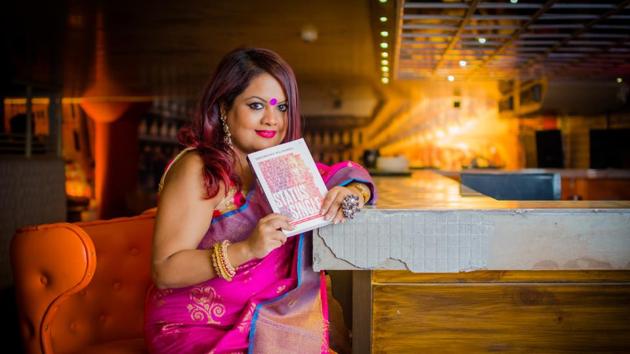‘Sl*t’, ‘bi**h’, ‘bimbette’ are words some use to describe single women: Sreemoyee Piu Kundu
In her new book, Status Single, author Sreemoyee Piu Kundu explores the struggles of single women in India.
When are you getting married?’ or ‘Tumhara number kab ayega?’ are some of the questions all the young single women in India have been asked incessantly. “The moment you turn 30, you go on to become a bechari-turned-bi**h. There’s a premium attached to youth in this country,” says author Sreemoyee Piu Kundu, whose new book, Status Single — her first non-fiction work — attempts to explore almost every concern that a single Indian woman has to face in the modern day India.

Citing some staggering figures from the Census of India, Kundu states that 21% of the Indian population, which is about 74 million women, are single. “This book is India’s first non-fiction on single women in India. It includes stories about unmarried women like me, divorced, separated women, women who have been abandoned with kids, and a huge chunk of this population belongs to the LGBTQ category,” says Kundu, whose book will be released in Delhi, on March 10 at the Women Writers’ Fest in Instituto Cervantes Nueva, Connaught Place.
The author spoke to 3,000 urban women to bring out their stories. “Status Single is actually the story of my own journey. I’m a 40-year-old urban, middle-class, single professional woman. And there are also interviews of 3,000 middle-class urban working single women like me in the book. It chronicles their stories, struggles, survival, triumphs, difficulties, stereotyping, and sl*t-shaming in India. Even the cover of the book has words, which were crowd-sourced. These not so flattering words are sl*t, bi**h, bimbette, baigairat, bin biyahi, sarfiri, nakchidi, abla, aleki, sex ki bhooki, which are usually used to describe single women. Whenever I spoke to a single woman and said that I’m working on this book, instantly, I would get connected to 10 other single women. Out of those 10 only two would agree to speak, but those two would connect me to another 20 single women,” says Kundu, who has earlier written books such as, You’ve Got the Wrong Girl (2016) and Sita’s Curse: The Language of Desire (2014).
“Indian gynaecologists rather than responding to a medical query or to the health of my vagina or breasts, offer unwarranted gyan on how I should have got married by now, and how I need to freeze my eggs. Why? I might not even want to be a mother! May be I’m very happy being an aunt or a sister or a friend. Why is my womb my destiny?”
An ex-journalist and now a full-time author, Kundu highlights how single women in India are treated, when they visit gynaecologists. The author says, “Gynaecologists, in my opinion, aren’t any better than jananis (Women with eternal knowledge). Rather than responding to a medical query or to the health of my vagina or breasts, they offer unwarranted gyan (advice) on how I should have got married by now, and how I need to freeze my eggs. Why? I might not even want to be a mother! May be I’m very happy being an aunt or a sister or a friend. Why is my womb my destiny?” The book explores a host of issues, starting from “the humiliation in the arranged marriage market” to all the “unsolicited advice of relatives” . Women, consider the tag ‘single’ to be a failure, feels Kundu. Adding to this is Kundu’s exploration of how women have become the “worst mouthpieces of patriarchy”. This acted as a speed breaker in her book-writing journey.
“In June last year, when the book came for its first round of edit, I had 35-40 women back out from the project and I had to almost shut it down.... This was so surprising for me! Women, who are highly educated, well-settled, earning, leading MNCs are still so frightened of their parents. It’s unbelievable to think of this happening in urban India and not in any small village. Many women who I spoke to said they married only because of the fear of their parents. The fear is probably because parents still don’t talk to us comfortably about sex, they don’t touch each other [in the presence of the child], and we look at parents as godly figures. You don’t look at them as your friend,” says the author, who has a larger plan in mind.
In the process of writing the book, she has formed an online community called #StatusSingle. “I plan to make this [as] a movement because that’s how the cause can become more than just male-bashing. We’ve to think of forming a community in solidarity. This may happen through an app for single women with which one can find a support group. That’s really my dream, and this is just a small ripple in a huge ocean,” says Kundu.
Interact with the author at Twitter/@HennaRakheja





